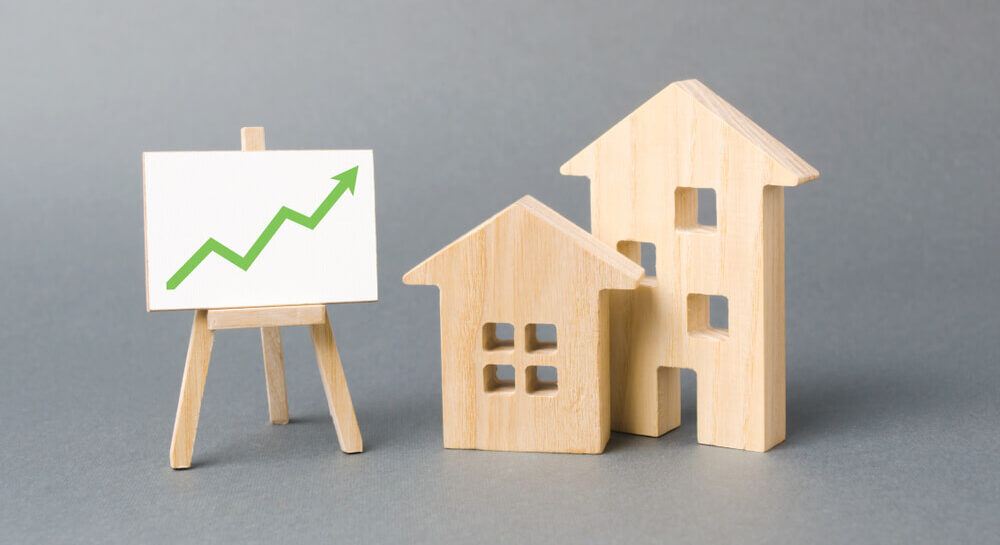I face a dilemma.
I’ve gone back and forth on this over the past few months, but I’m ready to sell my house in Dallas. With three kids, my family has outgrown it. It’s also an older property. It needs to be remodeled, but I lack the patience to get through that process. I’ll leave that for the new owner.
It’s a great time to sell. Alas, I have no intention of living in my car, so that means I am also a buyer. And it is a horrendous time to buy a house. In my neighborhood, I’ve seen houses sell for $50,000 over asking price. There are active bidding wars for almost every property that hits the market. Many buyers opt to wave inspections … in a neighborhood where most of the houses were built in the 1950s and are in need of an inspection.
Hence my dilemma. I can sell in a hurry. But what do I buy? I don’t want to get into a bidding war. And I don’t need a house at this exact moment.
Let’s take a step back and ask some more fundamental questions about home ownership.
Do You Need to Buy a House?
The most obvious reason to buy a house is to keep your significant other happy. Joking aside, the biggest reason for owning a house is non-economic in nature. It’s lifestyle preference. You might like the neighborhood or the schools. And it’s nice to have something that is truly yours.
But let’s look at the economics.
Yes, owning a home has certain tax advantages. You can write off the interest and property taxes. But let’s be clear. The single biggest reason to own a home is to build equity. For most people, a house is the largest single investment they’ll ever make … and they’ll almost always make it leveraged to the hilt. In a rising market, this can create a windfall.
Let’s play with the math. Let’s say you bought a $300,000 house. You made a down payment of $60,000 and financed the rest.
Let’s say your home appreciated in value by 10%. It’s now worth $330,000. Well, your equity rose by a lot more than 10%. That $30,000 bump in value is fully 50% of your $60,000 in equity. You just made 50% on your money.
Not bad!
No banker in their right mind would let you borrow that kind of money to buy stocks, cryptocurrencies or anything else. But they’ll lend it out for property even in a low-rate environment.
All of that is great. But before you jump into a bidding war, there are a couple things to remember.
A Mortgage Is a Double-Edged Investment
Think about the word “mortgage” for a minute. The word’s origins are Old French and translate to “death pledge.”
You’re committing yourself to a debt you may spend the rest of your life paying. And the leverage that boosts your gains in a rising market cuts both ways. If that house declines in value by 10%, you lose half your equity. And that’s assuming you put 20% down. FHA loans can require a down payment as low as 3.5%, and the average down payment these days is about 7%. At those levels, even a small fluctuation can wipe out your equity and leave you underwater on the loan.
Then what?
You can’t sell the house unless you bring more equity to the table to make up the shortfall. You could walk away from it, but you’d be ruining your credit and abandoning any hope of recouping your equity if or when home prices recovered.
I don’t say this to scare you out of buying a house. I prefer owning to renting. But I’d leave you with some points to consider.
How to Buy a House in Today’s Red-Hot Market
 1. If you have excellent job security, it might be OK to stretch a little on the payment. If you can comfortably pay, say, $3,000 per month but the house you want is going to cost you $4,000 per month, that might be ok if you’re willing to make a few cutbacks elsewhere in your budget and you believe your income will be high enough in a year or two to pay it month-to-month.
1. If you have excellent job security, it might be OK to stretch a little on the payment. If you can comfortably pay, say, $3,000 per month but the house you want is going to cost you $4,000 per month, that might be ok if you’re willing to make a few cutbacks elsewhere in your budget and you believe your income will be high enough in a year or two to pay it month-to-month.
Otherwise, do you want that house bad enough to eschew vacations and restaurant meals for the rest of your life?
If the payment is a major stretch, don’t do it. You’ll regret the decision and resent owning the house. It will cause you unnecessary stress.
2. Don’t get into a bidding war. That’s insane. Do you think you’re going to make a good financial decision if you’re forced to rush the process like that?
3. Love where you live. You need to be certain you’re going to live where you’re living for at least a few years. If there’s any kind of setback in the housing market, you don’t want to be in a position where you can’t sell without wiping out your equity.
As for me, I’m still considering my options. And if I can’t find a house I like at a price I find halfway reasonable, I’m happy to rent for a while.
To safe profits,
Charles Sizemore
Co-Editor, Green Zone Fortunes
Charles Sizemore is the co-editor of Green Zone Fortunes and specializes in income and retirement topics. You can catch him every week in his video segment Investing With Charles. He is also a frequent guest on CNBC, Bloomberg and Fox Business.






